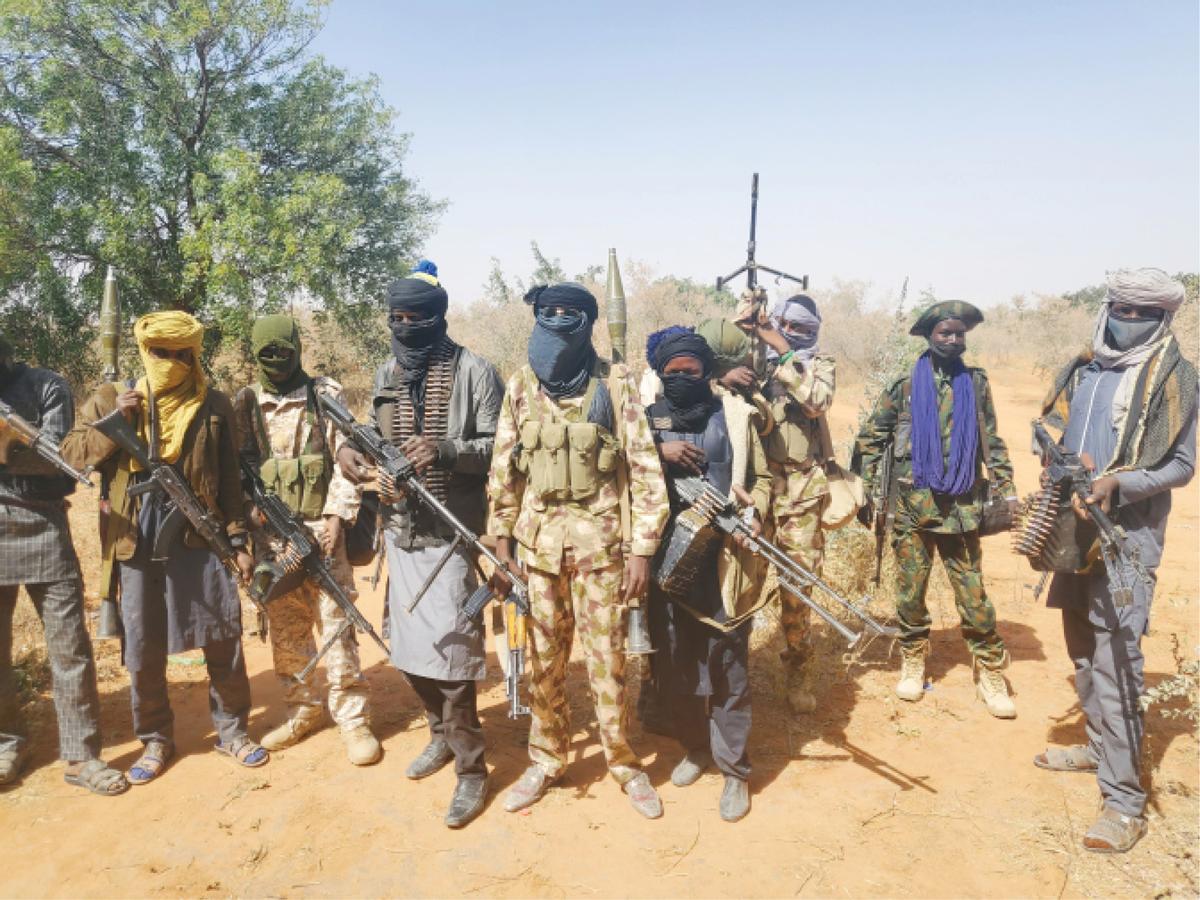The Banditry Menace in the North West: Challenges, Kingpins and the Way Forward
By: Zagazola Makama
Banditry has become a persistent and deadly problem in the North West and North Central regions of Nigeria. Unlike the insurgency in the North East, where Boko Haram and the Islamic State in West Africa Province (ISWAP) operate based on an ideological drive, the violence in the North West is mainly criminal in nature. This criminality, often referred to as “BARAYIN JEJI” (forest bandits), has terrorized local communities through raids, cattle rustling, kidnappings for ransom, killings, and the imposition of illegal levies on farming communities.
Despite ongoing military operations by the Nigerian Security Forces, bandits continue to engage in these sinister activities, creating a seemingly unending cycle of violence and terror in the region. Military campaigns, including Operation Hadarin Daji and other special operations led by the Defence Headquarters’ Joint Task Force (JTF) and ad-hoc military formations such as the 1st, 3rd, and 8th Divisions, have made significant progress. Hundreds of bandits, including top kingpins, have been neutralized in the past year. Yet, banditry continues to plague the region, as new criminal leaders quickly rise to replace those who are taken down.
Notable Kingpins Neutralized
In the last twelve months, the Nigerian military, in collaboration with local militias and security forces, has killed several high-profile bandit leaders, including Kachalla Ali Kawaje, the mastermind behind the abduction of students from Federal University Gusau.
Others include; Kachalla Jafaru, Kachalla Barume, Kachalla Shehu, Tsoho, Kachalla Yellow Mai Buhu, Yellow Sirajo, Kachalla Dan Muhammadu, Kachalla Makasko, Sanda, Abdulbasiru Ibrahim, Mai Wagumbe, Kachalla Begu, Kwalfa, Ma’aikaci, Yellow Hassan, Umaru Na Bugala, Isyaka Gwarnon Daji, Iliya Babban Kashi, Auta Dan Mai Jan Ido, and Yahaya Dan Shama.
Those that were recently nutrialised include; Kacalla Ɗan Baleri, Kacalla Dogo Kwaɗɗi, Lawalli Dodo, Kacalla Naguru, Kacalla Ɗan-Babirki, Kacalla Hana-Zuwa, Kacalla Adamu and the most recently was Kachallah Buzu aka Sububu.
One of the most recent and high-profile deaths was that of Kachalla Buzu, also known as Sububu, a notorious bandit leader. This success, attributed to the intensified efforts of Operation Hadarin Daji in collaboration with Zamfara State’s government-backed militia, has sent ripples through the criminal underworld.
However, despite these victories, the fight is far from over as the bandits continued to engage in hit and run as well as pockets of attacks in vulnerable communities. Rivalries and power struggles between bandit groups have further complicated the situation, leading to violent clashes between factions. For example, since April 2024, a violent feud has broken out between bandit leaders Sani Dangote and Dankarami (also known as Gwaska), leading to the deaths of dozens of bandits. These internal struggles for dominance among the criminal factions, though deadly, only serve to destabilize the region further.
The Rising Threat of Gwaska Dankarami
Read Also:
Gwaska Dankarami, who has emerged as one of the most dangerous and influential bandit leaders in the North West, is currently at the center of the power struggle. His recent attacks on rival bandit factions, including the killing of Sani Dangote’s associates, have positioned him as a major threat not only to the bandits themselves but also to security forces and local communities. Dankarami’s growing power highlights a disturbing reality: as long as one bandit leader is killed, another, often more dangerous, will rise to take their place.
The Turji Question
For many Nigerians, the hope is that the death of Bello Turji, one of the most infamous bandit leaders, would be the turning point in the fight against banditry. Turji’s terror campaign has left a trail of destruction and anguish across the North West, and his demise would undoubtedly bring relief to the families of his many victims.
However, experts warn that the killing of Bello Turji would not mark the end of banditry in the region. There are other bandit leaders, such as Alhaji Shingi, Alhaji Nashama, Ado Allero, Dogo Gide, and Dankarami, who are just as dangerous, if not more so. While Turji’s approach is driven by youthful aggression, older bandits like Nashama command respect and loyalty from other bandit factions, making them even harder to defeat.
Beyond Military Solutions: A Multi-Dimensional Approach
Ending banditry in the North West requires more than just military operations. Although the military has achieved significant victories, their efforts only address a portion of the problem. Banditry is deeply rooted in socio-economic issues such as illiteracy, poverty, and poor governance. The government must address these root causes if there is to be any lasting solution to the conflict.
The Nigerian government has made some efforts to engage local communities in the fight against banditry, notably through initiatives such as the Zamfara State Security Watch, which involves local youth in community security efforts. While this has yielded some positive results, more needs to be done. Authorities must adopt a deliberate and targeted approach, going after the key sponsors of banditry, who operate behind the scenes, often involved in illegal mining and other illicit activities. These sponsors are the true drivers of the conflict, using bandits as pawns to achieve their broader criminal objectives.
The government must also invest in long-term solutions such as education, job creation, and poverty alleviation. These efforts would help to prevent young people from being drawn into banditry in the first place. Furthermore, there must be a political will to tackle corruption and impunity, ensuring that those who support or profit from banditry are brought to justice.
Conclusion
While the military has made significant strides in combating banditry in the North West, the problem remains far from solved. As long as socio-economic issues persist and criminal sponsors continue to operate with impunity, banditry will remain a serious threat to the region’s stability. A multi-dimensional approach, combining military action with governance reforms, community engagement, and economic development, is the only way to ensure long-term peace and security in the North West.
*Zagazola Makama is a counterinsurgency expert and security analyst in the Lake Chad region.



